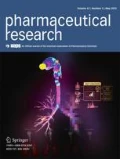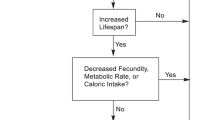ABSTRACT
Purpose
Prior studies from our laboratory have demonstrated the efficacy of a combined treatment of low doses of dietary agents curcumin and phenylethylisothiocyanate in effectively suppressing prostate cancer in vitro in human prostate cancer PC3 cells as well as in vivo in immunodeficient mice implanted with PC3 cells. Hence, this study was undertaken to examine the potential chemopreventive properties of the two agents against transgenic adenocarcinoma of the mouse prostate.
Materials and Methods
The efficacy of AIN-76A diet supplemented with 2% curcumin or 0.05% PEITC or a combination of 1% curcumin and 0.025% PEITC for periods of 10 and 16 weeks was tested against adenocarcinoma of the mouse prostate. Immunohistochemistry and Western blot analysis were used to examine the expression of proliferation and apoptotic biomarkers. All statistical tests were two-sided.
Results
Supplementing AIN-76A diet with dietary phytochemicals curcumin or PEITC either alone or in combination, significantly decreased incidence of prostate tumor formation (P = 0.0064). Immunohistochemistry revealed a significant inhibition of high-grade PIN (P = 0.0006, 0.000069, 0.00029 for a treatment period of 10 weeks and P = 0.02582, 0.022179, 0.0317 for a treatment period of 16 weeks) along with decreased proliferation and increased apoptotic index in the curcumin, PEITC or curcumin and PEITC treated animals, respectively. Furthermore, Western blot analysis revealed that downregulation of the Akt signaling pathway may in part play a role in decreasing cell proliferation ultimately retarding prostate tumor formation.
Conclusion
Our data lucidly evidence the chemopreventive merits of dietary phytochemicals curcumin and PEITC in suppressing prostate adenocarcinoma.




Similar content being viewed by others
References
L. Denis, M. S. Morton, and K. Griffiths. Diet and its preventive role in prostatic disease. Eur. Urol. 35:377–387 (1999).
C. Abate-Shen, and M. M. Shen. Mouse models of prostate carcinogenesis. Trends. Genet. 18:S1–S5 (2002).
J. R. Gingrich, R. J. Barrios, R. A. Morton, B. F. Boyce, F. J. DeMayo, M. J. Finegold, et al. Metastatic prostate cancer in a transgenic mouse. Cancer. Res. 56:4096–102 (1996).
N. M. Greenberg, F. J. DeMayo, P. C. Sheppard, R. Barrios, R. Lebovitz, M. Finegold, et al. The rat probasin gene promoter directs hormonally and developmentally regulated expression of a heterologous gene specifically to the prostate in transgenic mice. Mol. Endocrinol. 8:230–239 (1994).
D. Xiao, and S. V. Singh. Phenethyl isothiocyanate-induced apoptosis in p53-deficient PC-3 human prostate cancer cell line is mediated by extracellular signal-regulated kinases. Cancer Res. 62:3615–619 (2002).
C. Huang, W. Y. Ma, J. Li, S. S. Hecht, and Z. Dong. Essential role of p53 in phenethyl isothiocyanate-induced apoptosis. Cancer Res. 58:4102–4106 (1998).
Y. R. Chen, J. Han, R. Kori, A. N. Kong, and T. H. Tan. Phenylethyl isothiocyanate induces apoptotic signaling via suppressing phosphatase activity against c-Jun N-terminal kinase. J. Biol. Chem. 277:39334–39342 (2002).
D. Xiao, Y. Zeng, S. Choi, K. L. Lew, J. B. Nelson, and S. V. Singh. Caspase-dependent apoptosis induction by phenethyl isothiocyanate, a cruciferous vegetable-derived cancer chemopreventive agent, is mediated by Bak and Bax. Cli.n Cancer Res. 11:2670–2679 (2005).
C. Xu, G. Shen, X. Yuan, J. H. Kim, A. Gopalakrishnan, Y. S. Keum, et al. ERK and JNK signaling pathways are involved in the regulation of activator protein 1 and cell death elicited by three isothiocyanates in human prostate cancer PC-3 cells. Carcinogenesis. 27:437–445 (2006).
O. P. Sharma. Antioxidant activity of curcumin and related compounds. Biochem. Pharmacol. 25:1811–1812 (1976).
M. T. Huang, Z. Y. Wang, C. A. Georgiadis, J. D. Laskin, and A. H. Conney. Inhibitory effects of curcumin on tumor initiation by benzo[a]pyrene and 7,12-dimethylbenz[a]anthracene. Carcinogenesis. 13:2183–186 (1992).
M. T. Huang, Y. R. Lou, W. Ma, H. L. Newmark, K. R. Reuhl, et al. Inhibitory effects of dietary curcumin on forestomach, duodenal, and colon carcinogenesis in mice. Cancer Res. 54:5841–5847 (1994).
D. Deeb, H. Jiang, X. Gao, M. S. Hafner, H. Wong, G. Divine, et al. Curcumin sensitizes prostate cancer cells to tumor necrosis factor-related apoptosis-inducing ligand/Apo2L by inhibiting nuclear factor-kappaB through suppression of IkappaBalpha phosphorylation. Mol. Cancer Ther. 3:803–812 (2004).
J. H. Hong, K. S. Ahn, E. S. Bae, S. S. Jeon, and H. Y. Choi. The effects of curcumin on the invasiveness of prostate cancer in vitro and in vivo. Prostate Cancer Prostatic Dis. 9:147–152 (2006).
T. O. Khor, Y. S. Keum, W. Lin, J. H. Kim, R. Hu, G. Shen, et al. Combined inhibitory effects of curcumin and phenethyl isothiocyanate on the growth of human PC-3 prostate xenografts in immunodeficient mice. Cancer Res. 66:613–621 (2006).
J. H. Kim, C. Xu, Y. S. Keum, B. S. Reddy, A. Conney, and A. N. Kong. Inhibition of EGFR signaling in human prostate cancer PC-3 cells by combination treatment with beta-phenylethyl isothiocyanate and curcumin. Carcinogenesis. 27:475–482 (2006).
J. H. Park, J. E. Walls, J. J. Galvez, M. Kim, C. Abate-Shen, M. M. Shen, et al. Prostatic intraepithelial neoplasia in genetically engineered mice. Am. J. Pathol. 161:727–735 (2002).
S. Gupta, K. Hastak, N. Ahmad, J. S. Lewin, and H. Mukhtar. Inhibition of prostate carcinogenesis in TRAMP mice by oral infusion of green tea polyphenols. Proc. Natl. Acad. Sci. U S A. 98:10350–10355 (2001).
M. H. Aziz, M. Nihal, V. X. Fu, D. F. Jarrard, and N. Ahmad. Resveratrol-caused apoptosis of human prostate carcinoma LNCaP cells is mediated via modulation of phosphatidylinositol 3′-kinase/Akt pathway and Bcl-2 family proteins. Mol. Cancer Ther. 5:1335–1341 (2006).
N. Pommery, and J. P. Henichart. Involvement of PI3K/Akt pathway in prostate cancer—potential strategies for developing targeted therapies. Mini Rev. Med. Chem. 5:1125–1132 (2005).
N. Pommery, and J. P. Henichart. Involvement of PI3K/Akt pathway in prostate cancer. Potential strategies for developing targeted therapies. Ann. Pharm. Fr. 63:69–75 (2005).
S. Shukla, G. T. Maclennan, S. R. Marengo, M. I. Resnick, and S. Gupta. Constitutive activation of P I3 K-Akt and NF-kappaB during prostate cancer progression in autochthonous transgenic mouse model. Prostate. 64:224–239 (2005).
Acknowledgement
This study is supported in part by the National Institutes of Health grants R01-CA094828 and R01-CA118947 to A.-N. T. Kong.
Author information
Authors and Affiliations
Corresponding author
Additional information
Avantika Barve and Tin Oo Khor contributed equally to this work.
Rights and permissions
About this article
Cite this article
Barve, A., Khor, T.O., Hao, X. et al. Murine Prostate Cancer Inhibition by Dietary Phytochemicals—Curcumin and Phenyethylisothiocyanate. Pharm Res 25, 2181–2189 (2008). https://doi.org/10.1007/s11095-008-9574-7
Received:
Accepted:
Published:
Issue Date:
DOI: https://doi.org/10.1007/s11095-008-9574-7




